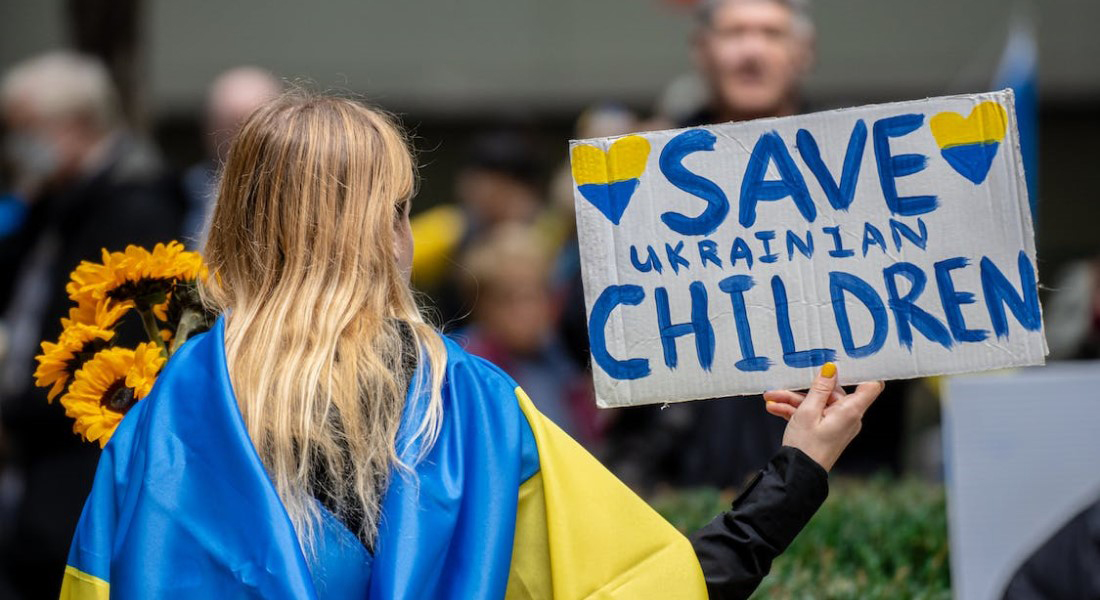Within days and weeks, the Russian invasion of Ukraine resulted in a surge in Facebook support groups in response to the war and following humanitarian crisis. Researchers at the University of Copenhagen have outlined Danish volunteers' first reaction, which was profound.

The Russian invasion of Ukraine on 24 February last year sent shock waves through the international community and government offices. But the invasion also saw strong reactions at grassroots level.
In a new research note, researchers from the University of Copenhagen outline and analyse the way Danish volunteers through Facebook groups organised help and support for Ukraine and Ukrainian refugees in the first weeks of the war (see figure). The effort was extensive.
On Facebook alone, the first days and weeks of the war saw the emergence of more than a hundred support groups from all over the country.
"On Facebook alone, the first days and weeks of the war saw the emergence of more than a hundred support groups from all over the country voicing their support for Ukraine or organising practical support for the refugees," says Assistant Professor Hjalmar Bang Carlsen from the Copenhagen Center for Social Data Science (SODAS).
Together with Associate Professor Jonas Toubøl and Graduate Student Tobias Gårdhus from the Department of Sociology he has outlined and analysed the spread and size of Facebook groups formed to help Ukrainian refugees. Today, a year after the Russian invasion, Hjalmar Bang Carlsen is impressed not just by how quickly people responded to the crisis via social media, but also by the efficiency of the effort.
"The Facebook groups recruited people who were willing to invest a lot of resources in the effort: Some drove to the border to collect refugees in busses, others offered to house or support them financially, and some coordinated the effort and established infrastructures for the relief work all over the country."
Number of self-organised Facebook support groups
The study has identified a total of 128 Facebook groups of which 60 are local groups from a specific part of the country. The groups differ a lot in size, with the five largest groups representing almost half of the more than 135,000 group members.
A lot of people want to act when they see a crisis unfold and believe that they can make a difference.
Even though only some of the members have been directly involved in the relief effort, and some can be members of more than one group, Hjalmar Bang Carlsen is impressed with the swiftness and nature of the response.
"It shows that a lot of people want to act when they see a crisis unfold and believe that they can make a difference. And we are not talking about people who acted out of self-interest here -some single-handedly brought three or four buses with refugees to Denmark. So the idea that such online commitment is a matter of pure clicktivism - where all you really do is like a SoMe post - does not apply here. We saw a lot of concrete action."
A new form of civil society response
The research note, 'Ukrainian Refugee Solidarity Mobilization Online', identifies a total of 128 Facebook groups which to different extents have played an important role in the effort to help Ukraine and Ukrainian refugees. 60 of these are local groups.
Aside from outlining the creation, spread and size of the Facebook groups, the paper provides methodical reflections on research into online support groups, including data collection. The project is supported by funding from the Faculty of Social Sciences at the University of Copenhagen.
The brief has been approved for publication in the journal European Societies. See a preprint here: Ukrainian Refugee Solidarity Mobilization Online
In Denmark, Facebook groups were also used as a platform for mobilising crisis volunteers during the Syrian refugee crisis back in 2015 and again during the pandemic - two crises, which the researchers behind the new study have also analysed.
According to Hjalmar Bang Carlsen, the reactions shows that volunteerism through social media has gained importance next to more established relief organisations and government action. That is why it is important to understand the social dynamics at play here.
"Why don't people just join the Red Cross or some other relief organisation? Some say that it is too much of a hassle, that the process is too lengthy, and that those memberships are binding. Also, many don't associate their 'small' deeds with organisations like the Red Cross," says Hjalmar Bang Carlsen, who adds that the looser organisation of these groups is not without its problems.
During the pandemic, for example, the extent of the need for help was not clear, and help did not always get to those who needed it the most. In addition, some people are not familiar with using social media or comfortable asking for help through these channels.
Get more background knowledge and perspectives on the Ukraine and the war on the faculty's theme page.
"This time, a lot of people have asked for help. But it is a problem that the support group-based effort does not have the same organisational resource or accountability structures that are typical in more formal welfare organisations. How do we, for example, make sure the refugees and volunteers are thriving in their everyday life if the refugees are put up in private homes?" says Hjalmar Bang Carlsen and adds:
"In general, though, I believe this effort has made a difference; people have gone to great lengths to help the Ukrainians."






